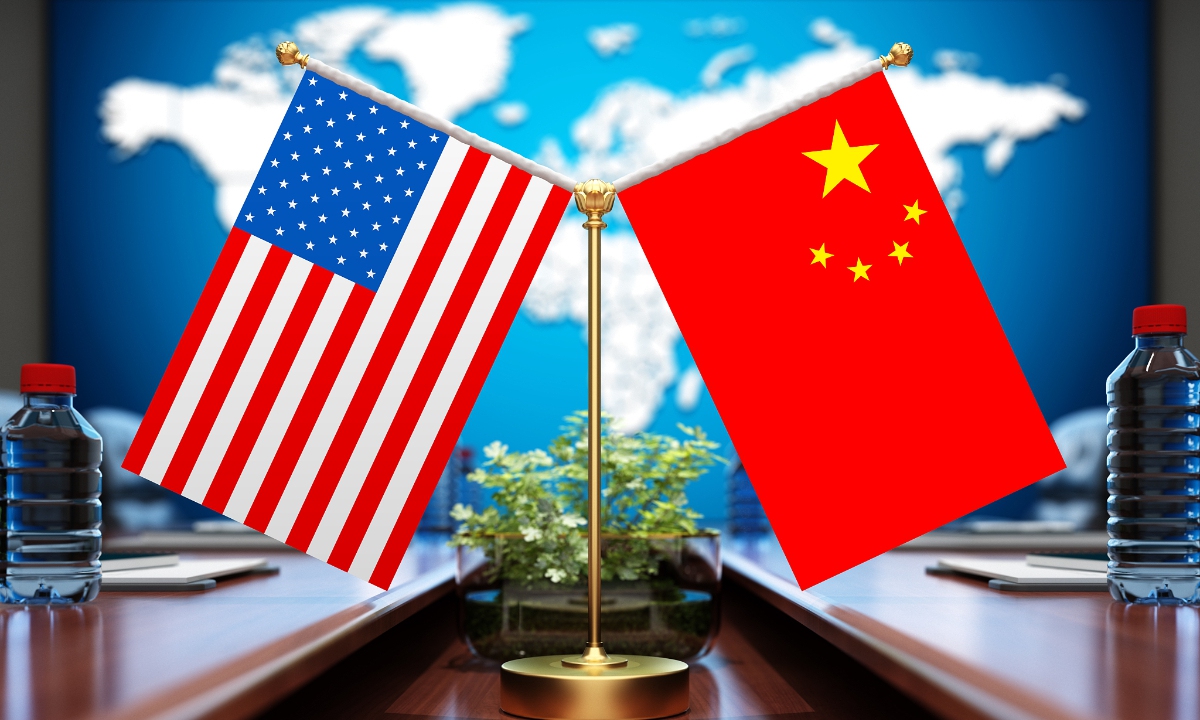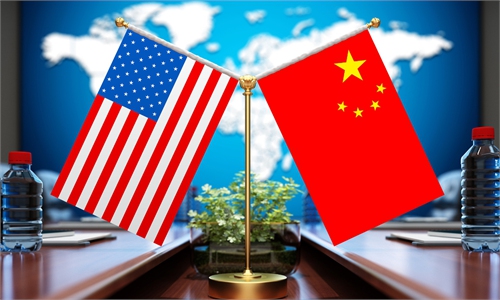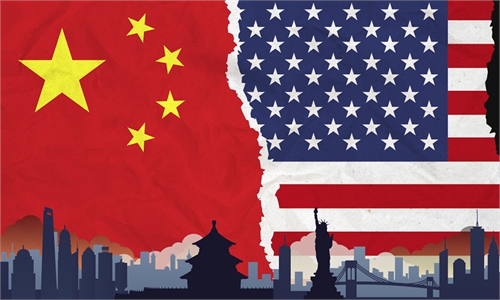What signals are released in video call between Chinese, US defense chiefs?: Global Times editorial

Photo:VCG
On the evening of April 16, Chinese Defense Minister Dong Jun held a video call with US Defense Secretary Lloyd Austin at the request of the latter. This marks the first communication between the defense chiefs of China and the US since November 2022, and represents the latest development in implementing important consensus reached by the two countries' leaders. The call lasted for over an hour and focused on several major and sensitive issues between the two militaries, including the Taiwan question and South China Sea issue. According to the US side's response, the call went relatively smoothly, with Pentagon officials stating that it was an "important step" in keeping lines of communication open between the two military powers. But it is definitely not the last step, "there will be more."
The leaders of China and the US are committed to stabilizing and improving bilateral relations. The military domain is crucial for ensuring the implementation of the leaders' consensus, stabilizing the development of the two countries' relations and preventing major crises. Observers have noticed that the Chinese side's official statement regarding this call mentioned "at the request" of the US. Recently, the US has engaged in several provocative actions in the Taiwan Straits and the South China Sea, including the visit of the "naval chief" of the Taiwan island to the headquarters of US Indo-Pacific Command in Hawaii, the quadrennial military exercises involving the US, Japan, Australia, and the Philippines, and the deployment of the Mid-Range Capability missile system by the US in the Philippines during joint exercises. Some opinions suggest that the timing of the US requesting this call is also aimed at gauging the Chinese stance and conducting some "firepower reconnaissance."
China has made its stance clear and unequivocal: Its core interests will never be compromised, and the territorial sovereignty and maritime rights and interests of China in the South China Sea must be effectively respected. In both the Taiwan Straits and the South China Sea, the US is an external force, and if it extends its hand too far in these directions and crosses the line, it will face resolute opposition from China. It's well-known that the abnormal "freeze" in high-level military exchanges lasting for 18 months was one of the serious consequences triggered by Nancy Pelosi's visit to Taiwan. The US is well aware of this, and it should also understand China's bottom line and red line.
Chinese people attach great importance to the concept of "the unity of knowledge and action." While the US is discussing "crisis management" with China, it is also engaging in military cooperation with countries like the Philippines and Japan, with a clear intention of targeting China. If Washington continues to say one thing and do another, it is certain that what it wants is to maintain crackdown on China while demanding China promise not to resist, which is impossible. In other words, saying beautiful words to China while doing harm will not effectively set "guardrails."
Washington's credibility in communication and exchange with China still needs to be truly strengthened. This is also emphasized by China as "based on trust." Many times, the starting point of US' communication is not to meet China halfway, better manage differences and resolve conflicts, but rather make its allies more confident in how it handles relations with China, demonstrate the ability of the US to control US-China relations without losing control, thereby making its allies more confidently follow the US in fierce strategic competition with China. This also indicates that the comprehensive rebuilding of military mutual trust between China and the US is more challenging than the restoration of dialogue mechanisms.
The US wants to "manage crises" with China, and the most fundamental issue is to solve the problem of strategic perception, respecting China's core interests and major concerns. It's clear that Washington is now also "cautious," wanting to repeatedly play the "Taiwan card," but unwilling to draw fire onto itself, so it wants to control the Democratic Progressive Party, attempts to instigate the Philippines to stir up trouble in the South China Sea, but is worried about losing control of the situation. Therefore, it constantly sends out mixed signals. This contradictory mentality and opportunism are also reflected in the exchanges between the Chinese and American militaries. Of course, it is better to talk than not to talk. One of the benefits is to constantly make the US understand China's bottom line and red line.
President Xi Jinping and President Joe Biden emphasized during their recent phone call that two big countries like China and the US should not cut off their ties or turn their back on each other, still less slide into conflict or confrontation. This is not only China's attitude, but also the expectation of the world. As the stable foundation of the development of China-US relationship, we hope to see substantial improvement in the military relationship. In particular, the US needs to show credibility, gain trust from China, and more importantly, gain trust from the world.


